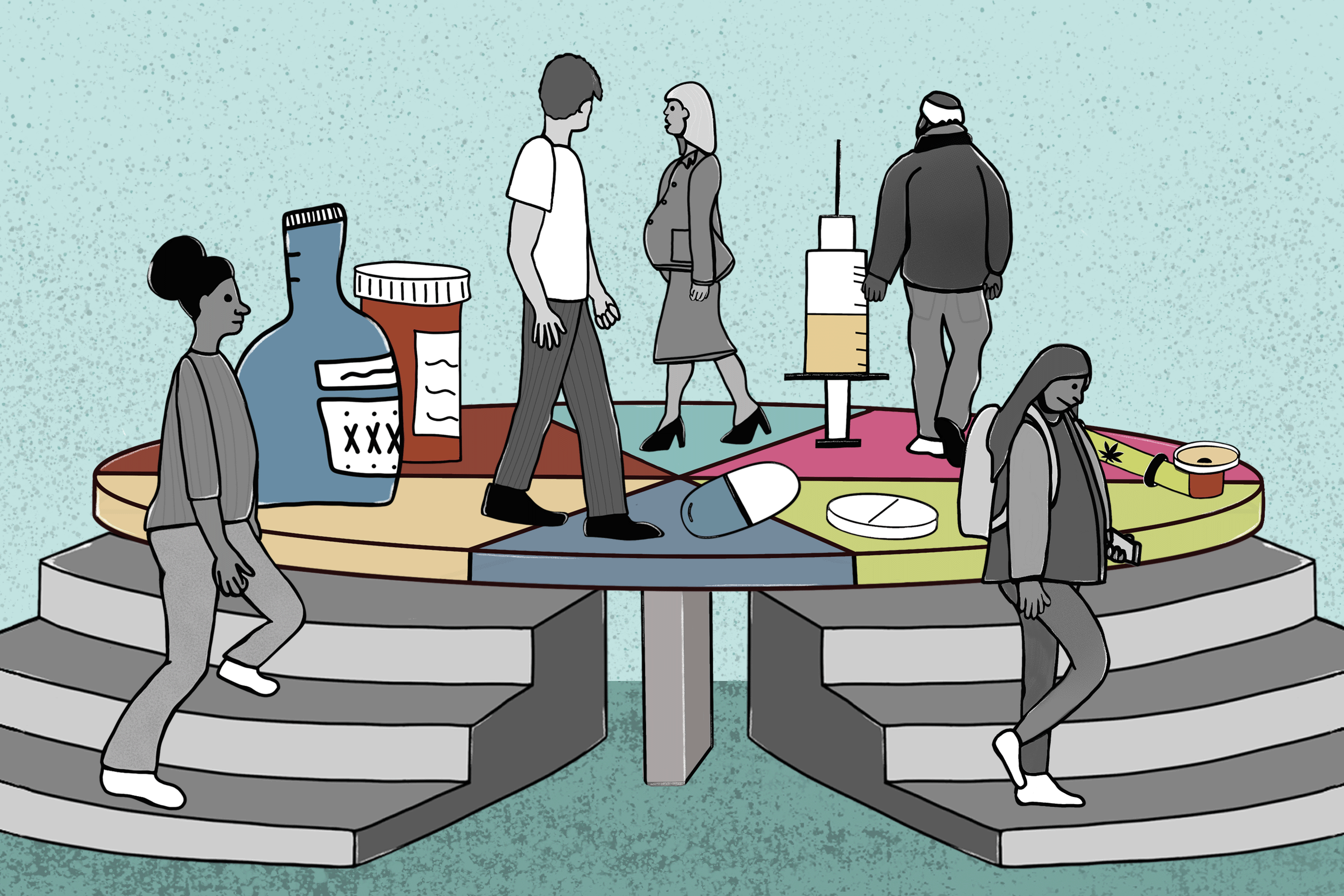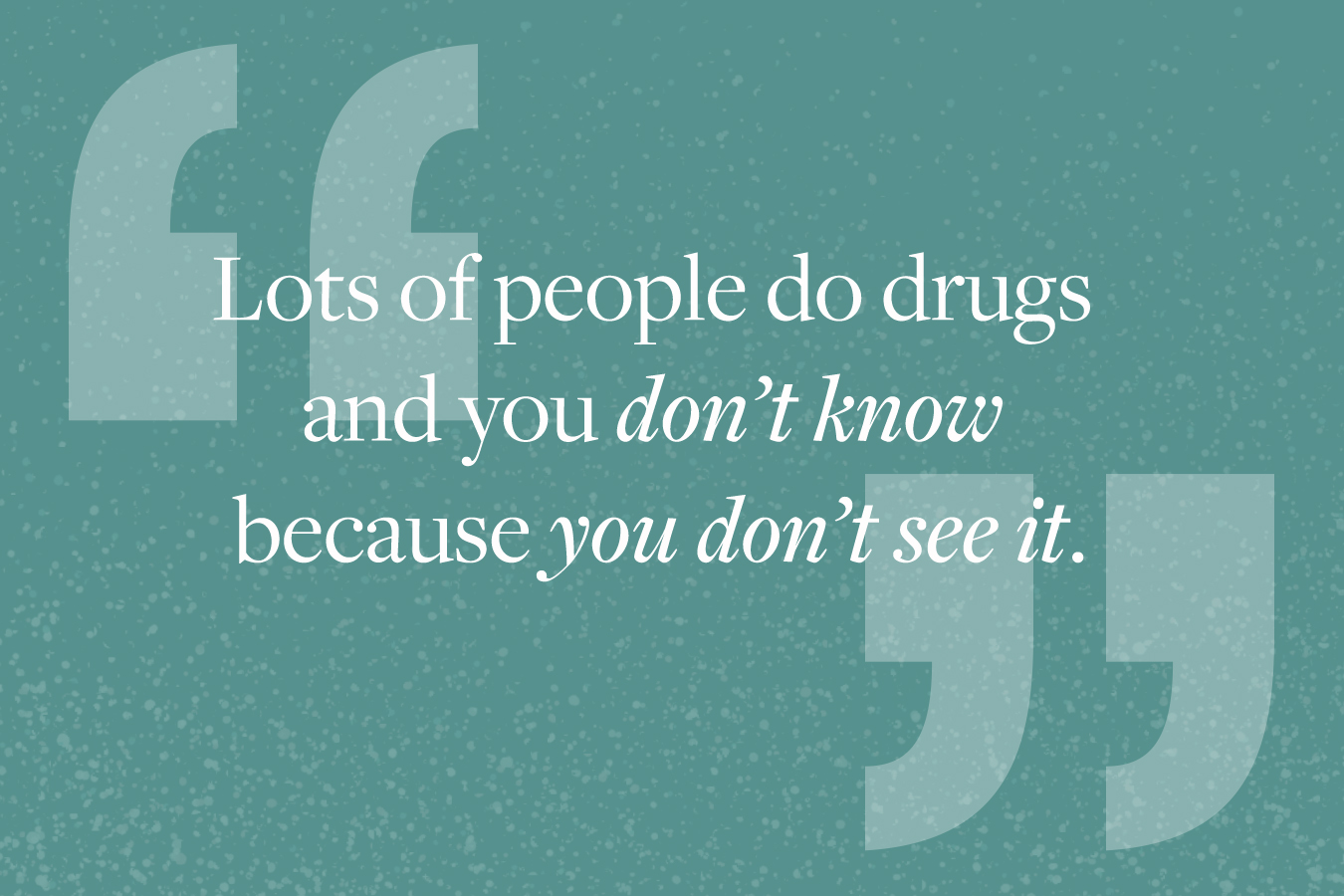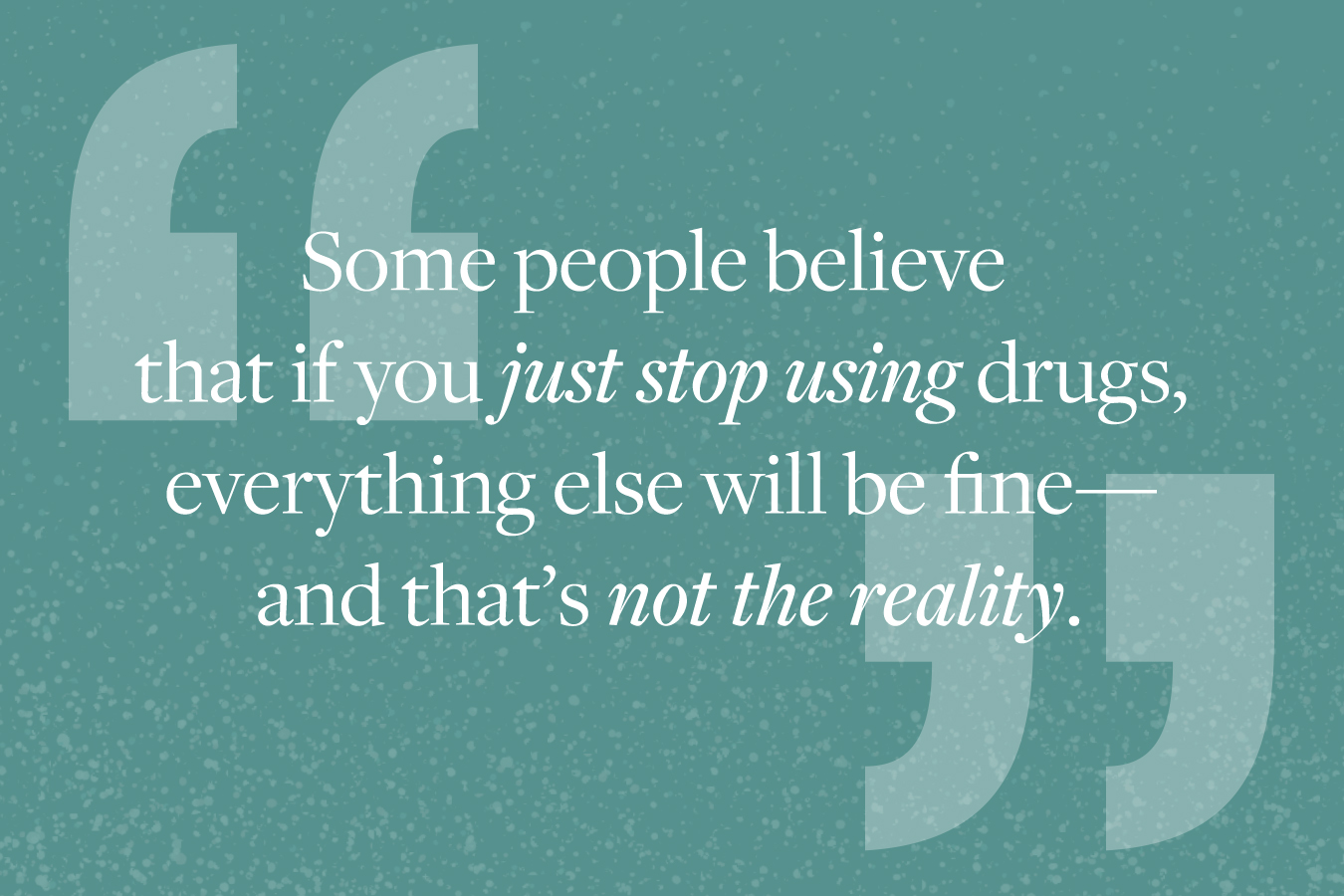
Misconceptions and stereotypes around drug use are dehumanizing and unhelpful
Helen Knott began using drugs at the age of 13. As the years passed and her use of both alcohol and cocaine intensified, Knott, now 32, felt more and more like a burden to her parents and son. Her response was to disappear from her own life without warning.
“In not getting sober, I just felt like I was letting everyone down,” she says. “I [was] called every name in the book, from ‘slut’ to ‘drunk’ at some point.” In addition to the judgment of others, Knott had internalized the message that using drugs necessarily subsumed her entire identity, leaving no room for the complex person she was: someone who depended on substances to numb the emotional devastation of childhood sexual abuse.
When people in her orbit called her names and suggested that she wasn’t trying hard enough to get sober, Knott recalls thinking that she must be “deficient or broken in some way. I felt compelled to keep it hidden and not let people know that I was struggling at that level,” she adds. “It really made it hard to believe that I was worth helping.”
Myths surrounding drug use—and even the language we commonly find ourselves using—can perpetuate shame and stigma. This makes it more challenging for individuals to seek help and less likely that sufficient resources will be allocated to social programs for drug users. But it turns out that much of what we assume about substance use is wrong.
Substance use is not an identity
When we refer to individuals who use drugs as addicts, we unintentionally dehumanize them, says Rhiannon Thomas, coordinator of COUNTERfit Harm Reduction Program at South Riverdale Community Health Centre, a United Way–funded agency in Toronto.
“Using the word ‘addict’ gives the impression that the person is defined only by their substance abuse and that they have no control over anything in their life,” says Thomas. “We’re not looking at this person as a mom, a sister, a nurse. And then it becomes very easy to remove services and treat them differently.”

Substance use does not mean you’re out of control
Thomas says that while dependence on a substance is not a choice, the perception that people who use drugs are wildly out of control in every element of their lives is wrong.
“Lots of people do drugs and you don’t know because you don’t see it,” she says. “It might be because they have jobs and they’re able to use from the privacy of their own homes. The people we make assumptions about are often on the street or struggling or relying on survival-based tactics to get their drugs.”
In fact, according to Government of Canada statistics, one in five Canadians aged 15 and older experiences a substance use disorder in their lifetime.
Drugs are not simply recreational
Much of the messaging surrounding drug use portrays addiction as an outgrowth of recreational use, but the reasons for drug use are actually much more complex and varied.
Knott, for example, was trying to numb sexualized trauma. Others start using drugs such as opioids to cope with chronic or acute pain.
“Some people use drugs for fun, but lots of people use drugs to self-medicate,” says Thomas. “People who are poor, Black or Indigenous are often repeating certain cycles of trauma and poverty, and they’re also at elevated risk for over-policing. There are just as many people who are white and have money who do drugs, but you just have to look at prison statistics to see how that shakes out.”

Quitting isn’t a cure-all
“Some people believe that if you just stop using drugs, everything else will be fine—and that’s not the reality,” Thomas says. She notes that relapse rates are extremely high and there’s very little evidence about the efficacy of abstinence-based programs.
Knott says she eventually understood that relapse is part of the journey. “I realized that that every time I did seek treatment, I learned things I could add to my toolbox,” she says. “It helped to know that recovery can happen in stages.”
The bottom line, she says, is that individuals have to decide that they want to make changes—regardless of what point they’re at in their drug use and their lives. “We can’t make anyone go to treatment, and it’s pointless to do so,” she says.
Harm reduction saves lives
Harm reduction programs like safe-consumption sites and needle exchanges can be controversial, particularly in the communities where they’re located. But there’s no evidence that they increase substance abuse, says Thomas, and they can make neighbourhoods safer. “You have workers connecting with people and encouraging them not to leave their needles around. [Users] don’t have to do it on their own and without proper information.”
South Riverdale Community Health Centre’s harm reduction program includes community drop-in programs and supervised consumption sites, which help prevent fatal overdoses, the transmission of disease and the exacerbation of underlying health issues. They also have an outreach clinic for those who have trouble accessing health and social services due to drug use, homelessness or mental health issues, and who might need expert advice on how to manage substance use in the context of other concerns.
Support goes a long way
Knott, who turned things around about eight years ago and is now pursuing a degree in First Nations studies, says a change in narrative helped her reconnect with herself as a whole person. In the grips of physical withdrawal and having distanced herself from her family, her phone started flooding with uplifting text messages from friends and family: You are a strong woman; you are a warrior; you are capable of anything; and life wouldn’t be worthwhile without you. Among her successes? Her book In My Own Moccasins: A Memoir of Resilience, was published in 2019 and has garnered multiple awards nominations.
“Those were things I had forgotten about myself,” she says. “The negative narratives are just things that people who use drugs already believe about themselves and it perpetuates addiction. But when we speak to the core of that person, when outside people can act as memory keepers, those who struggle can remember how to see themselves.”